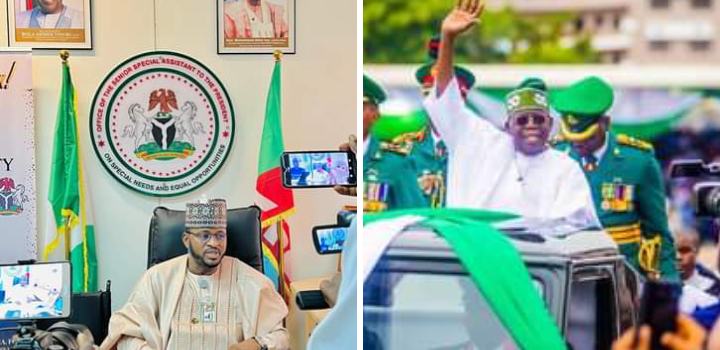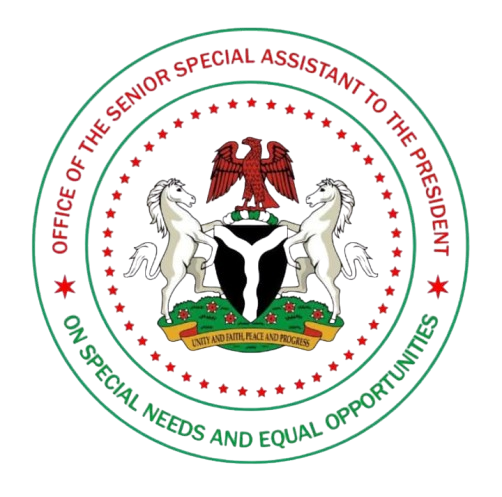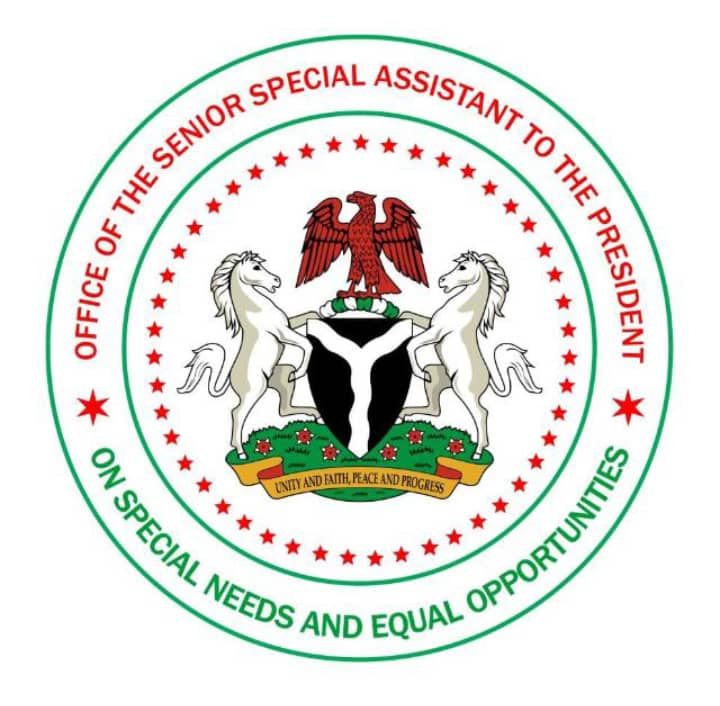
Published May 29, 2024
By Lanre Oloyede
Senior Special Assistant to the President on Special Needs and Equal Opportunities, Hon Mohammed Abba Isa, has described the Renewed Hope Agenda of President Bola Ahmed Tinubu’s administration as a transformative force in the lives of many Nigerians with Disabilities.
Hon. Abba Isa stated this in a statement marking the One-year Anniversary of President Tinubu’s administration and the impact the Renewed Hope Agenda has had on the lives of Persons With Disabilities in the country.
According to the statement signed by the Chief Press Secretary, Patience Ochigbo, the Senior Presidential aide noted that this administration has been dedicated to creating an inclusive, equitable, and prosperous Nigeria for all its citizens.
While highlighting his achievements over the past six months in office and sharing his vision for the future, the SSAP maintained that the current administration has taken significant strides to ensure that every Nigerian, regardless of their abilities, has the opportunity to thrive.
The Senior aide to President Bola Ahmed Tinubu listed some of the achievements of his office in the last six months to include the following:
1. Enhanced Accessibility: We have made substantial progress in enhancing accessibility around public infrastructure. New regulations have been implemented to ensure that all new buildings comply with accessibility standards.
In fulfillment of the Renewed Hope Agenda of President Bola Ahmed Tinubu, we recently distributed some assistive devices to Persons With Disabilities in the Niger-Delta region to aid their mobility and ease their pain of accessing public infrastructures.
Also recently, at a forum organized by the Nigerian Association of the Blind, I made strong case for provision of access to digital and educational materials for the visually impaired persons in Nigeria.
2. **Inclusive Education Initiatives**: Recognizing the importance of education, along with stakeholders organisations, we launched inclusive education programs that have increased enrollment and retention rates of children with disabilities in schools. Specialized training for teachers and the provision of assistive technologies have been pivotal in this success.
Through engagement and consultation with key stakeholders, we have advocated for the Provision of adequate infrastructure and resources to support the unique needs of students with albinism, training teachers and staff on inclusive teaching methods, and raising awareness and dispelling myths and misconceptions surrounding albinism.
3. **Economic Empowerment Programs**: We have initiated several programs aimed at economically empowering PWDs. This includes vocational training, microfinance schemes, and partnerships with the private sector to create job opportunities tailored to the skills and capabilities of PWDs.
Earlier in March, the our office with support from partner organizations, empowered over 20 PWDs beneficiaries who went home with Point of Sales machines, cash support and other startup kits to enable them start a self-dependent life.
4. **Healthcare Accessibility**: Access to healthcare has been a priority. We have improved medical facilities to cater to the needs of PWDs, ensured the availability of assistive devices, and trained healthcare professionals to provide inclusive services.
The strategic partnership and engagement we had with the Minister of Health, Prof. Muhammad Ali Pate, has resulted in the inauguration of the National Steering Committee on Disability Inclusive Healthcare with a mandate to work together to create a more inclusive and accessible healthcare system for PWDs
5. **Legislative Advancements**:
The enactment and enforcement of the National Disability Act have been a landmark achievement. This law provides a comprehensive framework to protect the rights of PWDs and ensure their full participation in society.
At a joint press conference on the launch of simplified version of the Disability Act, I demanded for decentralization of awareness creation on the Discrimination Against Persons With Disabilities Prohibition Act 2018 to the subnational levels and local government areas in order to ensure that awareness on the National Disability Act and its implementation reach the rural areas and people at the grassroots where over 80 percent of Persons With Disabilities (PWDs) are domicile lacking access to basic information and source of livelihood.
**Impact of the Renewed Hope Agenda on Persons with Disabilities**
The Renewed Hope Agenda has had a profound impact on PWDs in Nigeria. We have witnessed a significant increase in the inclusion of PWDs in various spheres of life. The unemployment rate among PWDs has decreased, educational attainment levels have risen, and there is a greater sense of empowerment and self-reliance among PWDs.
Moreover, the societal perception of PWDs is gradually shifting. The stigma and discrimination that once marginalized PWDs are being replaced by recognition of their potential and contributions to society. This cultural shift is one of the most heartening outcomes of our efforts.
**Policy Directions for the Future**
As we look to the future, our commitment to the Renewed Hope Agenda remains unwavering. Here are the key policy directions we will be focusing on:
1. **Strengthening Legislation**: We will continue to seek the legislation of disability laws across the country, and strengthen and enforce disability rights legislation to ensure full compliance across all sectors.
2. **Expanding Economic Opportunities**: With the support of relevant partners, we aim to expand our economic empowerment programs, including launching new initiatives that support entrepreneurship among PWDs and creating more partnerships with the private sector.
3. **Improving Data Collection**: Accurate data is essential for effective policy-making. We will enhance our data collection mechanisms to better understand the needs and challenges of PWDs and to monitor the impact of our initiatives.
4. **Enhancing Social Protection**: We will work to expand social protection programs to ensure that PWDs have access to the support they need, including social security, healthcare, and housing.
5. **Promoting Awareness and Advocacy**: Continuous advocacy and awareness campaigns will be crucial in changing societal attitudes towards PWDs and promoting a culture of inclusion and respect.


